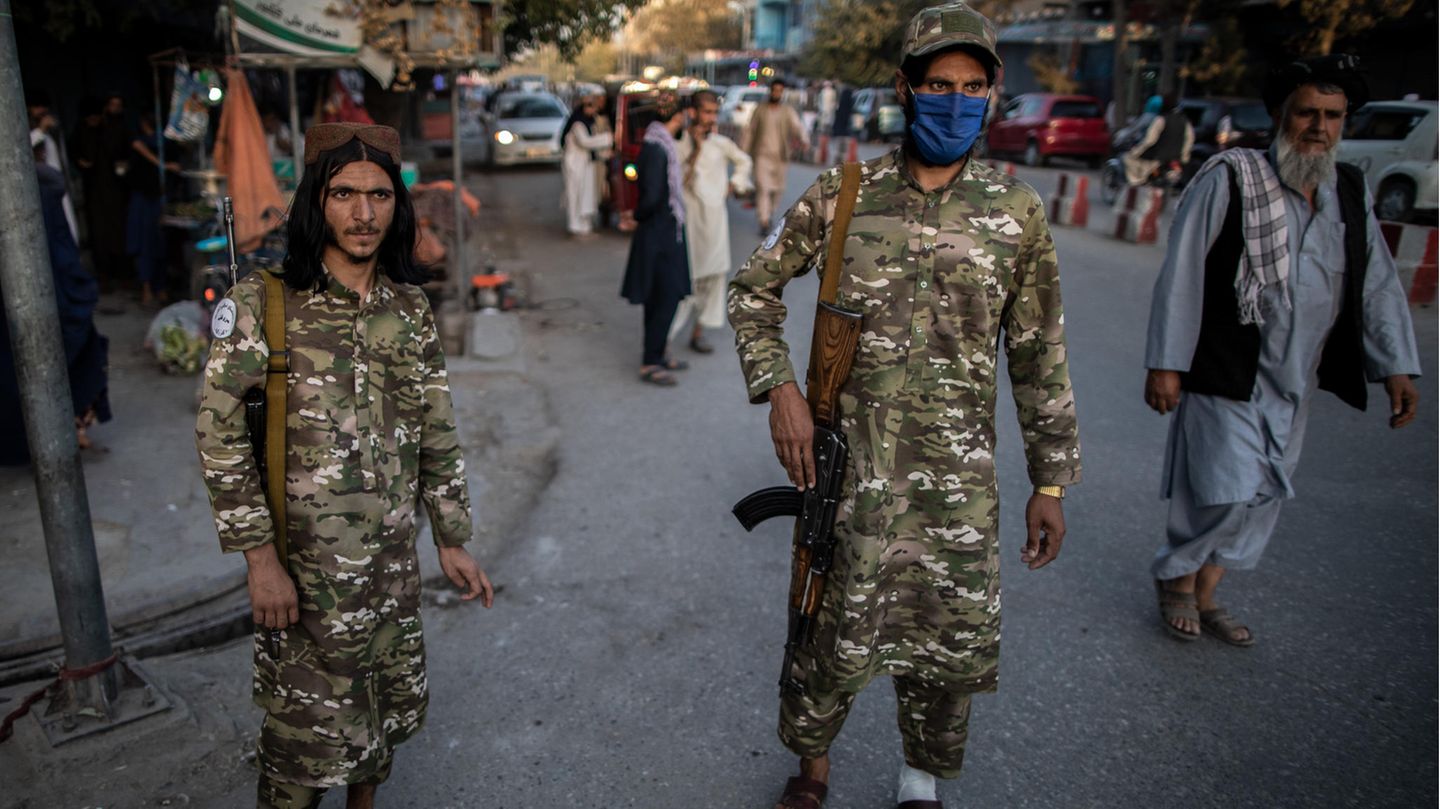Kunduz was the fate of the Germans in Afghanistan. Instead of the Bundeswehr, bearded Taliban fighters in plastic sandals patrol there today. The people are relieved that the war is over – and fear of the future under the new regime.
Nadia Safi hosted her last program on August 7, the day after the Taliban captured Kunduz. Since then, Radio Zohra has been a women’s channel without women’s voices in its live program. The new rulers have ordered women to stay away from their jobs until further notice; only a few professions, for example in the medical field, are excluded. The popular programs with listener requests are also over; music may no longer be played on the instructions of the Taliban. Women’s rights, a strong civil society, free media: Radio Zohra symbolizes many of the goals that the Germans wanted to achieve in northern Afghanistan – and which are now just as threatened as the station.
Self-censorship out of fear
Mohammad Mochsin Achmadi is editor-in-chief of Radio Zohra (in German: Radio Venus). Today he laments a whole series of problems: his colleagues are not allowed to work, the station is running out of money, and recently German development aid has broken down. The Taliban intervened in the reporting, and if not, fear for the staff and the station for self-censorship. Messages are adjusted accordingly. Instead of pop music, music-free poetry readings would now be played, and instead of current contributions, repetitions of old interviews. The transmission time has been reduced from 24 to 13 hours a day.
Moderator Safi only came to the studio for the reporters from Germany. The sound insulation in the stuffy transmitter room is decorated with a spotty blue and white pattern, on the dusty desk are two old monitors, a mixer, a microphone and a modem. When Safi will be able to moderate here again is an open question – she wonders whether “until further notice” could possibly mean with the Taliban that she should sit at home forever.
Safi is 20 years old – it has been almost that long since the US and its allies in Afghanistan put an end to the Taliban’s first government. “Women have fought for their rights for 20 years,” says the journalist. She doesn’t want to give up hope. “But of course the first Taliban government was not a good experience for us. And they are the same people.” The young woman believes the Bundeswehr left too early.
Kunduz: the failed concept of the Germans
Safi was a toddler when the Bundeswehr moved into her northern Afghan home province at the end of 2003. A so-called civil-military reconstruction team should bring success, the logic behind it: The Bundeswehr ensures a safe environment in which civil development work can take place – and the more the region develops, the safer it becomes. As is well known, the concept did not work. Kunduz became the fate of the Germans in Afghanistan, no name is more closely associated with the mission and, above all, with the many victims.
In September 2009, a German colonel ordered the bombing of two tank trucks that the Taliban had hijacked in Kunduz. Dozens of civilians were killed. The Good Friday battle on April 2, 2010 also went down in the history of the Bundeswehr. Three soldiers died and eight others were wounded when a patrol near Isa Khel in Kunduz province was ambushed by the Taliban.
“We are happy that the Taliban are here”
The villagers in Isa Khel still remember the Good Friday battle, when, according to their stories, bullets flew through the streets. Regardless of this, they still remember the Bundeswehr soldiers, and that is by no means only positive. The farmer Hajatullah Sadikjar blames the Germans for a gunshot wound in the shoulder, the scars of which he shows.
In Isa Khel there have hardly been any foreigners in recent years, at least not unarmed. Immediately a crowd of people formed around the German reporters. An old man complains that his wife and four children were killed in a US air strike. Another villager shows a photo of his destroyed house. Almost everyone has a story of suffering to tell. “We are glad that the Taliban are here and that the military has withdrawn,” says shopkeeper Said Rahim. “We’re simple people, we just want peace.” However, they expressly praise the development aid of the Germans in Isa Khel, to which they owe their power grid and the paved road that leads to the city and the market.
One hears this request again and again in the region: Couldn’t the Germans come back, only this time without the military? The legacies of German development aid can be found everywhere in Kunduz. The hospital was built with federal funds, traces can even be found in the Koran school in the city center, where the kitchen and sanitary facilities were financed, among other things.
The field camp, which the Bundeswehr ceremoniously handed over to the Afghan security forces in autumn 2013, is also used. But not in the interests of the federal government: Today it is a base for Taliban fighters. Germany invested around 250 million euros in the camp’s infrastructure.
Can the Taliban even govern?
What even critics of the Taliban admit: the Islamists have succeeded in ensuring security in Kunduz. Where the Bundeswehr once went on patrol, the Taliban now ensure peace and order. Much of it seems improvised, the Islamists do not yet have their own uniforms. Long-haired, bearded men – some look like teenagers – run through the streets with stern eyes and shouldered weapons, they wear plastic sandals. Others patrol in captured police cars, on the radiator the white Taliban flag with the Islamic creed in black inscription.
They have proven that the Taliban understand something about war. Whether the Islamists can rule is another matter. The first edition of their regime from 1996 to 2001 was not a successful model. Afghanistan was impoverished and almost completely isolated internationally.
In Kunduz the market is full and the shops are open. The streets are in the usual chaos, and the end of the fighting brings noticeable relief across town. In the background, however, huge economic problems are brewing – it is not for nothing that the Taliban are asking for international support.
Currently, Afghans can only withdraw money from the bank once a week per account holder, the equivalent of 200 dollars (170 euros) in Afghani, the local currency that is unusable for imports from abroad. For a large family, the amount is hardly enough to survive. Government officials in Kunduz have not received a salary for two months. At the same time, the cost of living is skyrocketing and poverty is increasing.
A financial expert in Kunduz, who has already worked for the old government and also works for the new one, warns that the country will soon face economic collapse if the Taliban do not receive help from abroad. The people in Kunduz are just not yet aware of this.
David William is a talented author who has made a name for himself in the world of writing. He is a professional author who writes on a wide range of topics, from general interest to opinion news. David is currently working as a writer at 24 hours worlds where he brings his unique perspective and in-depth research to his articles, making them both informative and engaging.




